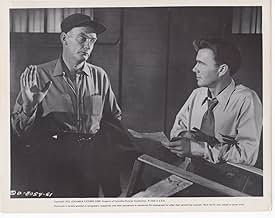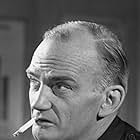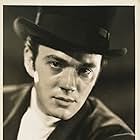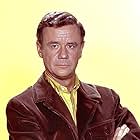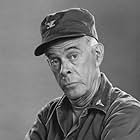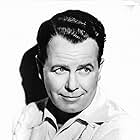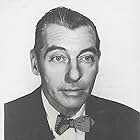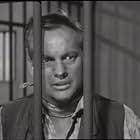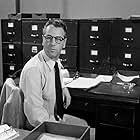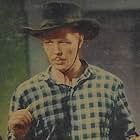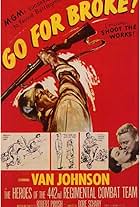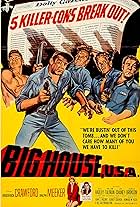Füge eine Handlung in deiner Sprache hinzuA psychologist pioneers a research study at a prison. He seeks the help of six savvy inmates including a safe-cracker, a mobster, a pair of armed robbers and psychopath. Could he trust them?... Alles lesenA psychologist pioneers a research study at a prison. He seeks the help of six savvy inmates including a safe-cracker, a mobster, a pair of armed robbers and psychopath. Could he trust them? What's in it for them?A psychologist pioneers a research study at a prison. He seeks the help of six savvy inmates including a safe-cracker, a mobster, a pair of armed robbers and psychopath. Could he trust them? What's in it for them?
- Auszeichnungen
- 1 Gewinn & 1 Nominierung insgesamt
Harry Morgan
- Dawson
- (as Henry Morgan)
Charles Bronson
- Jocko
- (as Charles Buchinsky)
Wesley Addy
- Bit Role
- (Nicht genannt)
Jack Carr
- Harry Higgins
- (Nicht genannt)
Dick Cogan
- Convict #2
- (Nicht genannt)
Dick Curtis
- Guard
- (Nicht genannt)
Handlung
WUSSTEST DU SCHON:
- WissenswertesMillard Mitchell was the first actor to win a Golden Globe Best Supporting Actor award without receiving a corresponding Academy Award nomination. The other 6 in chronological order are: Earl Holliman in Der Regenmacher (1956), Stephen Boyd in Ben Hur (1959), Oskar Werner in Der Spion, der aus der Kälte kam (1965), Richard Attenborough in Kanonenboot am Yangtse-Kiang (1966) then Doctor Dolittle (1967) (these two wins in successive years), Richard Benjamin in Die Sunny-Boys (1975) and Aaron Taylor-Johnson in Nocturnal Animals (2016).
- PatzerThe convicts manage to carry off an elaborate scheme to bring Randall's wife from Canada and smuggle her into the prison simply so Randall can enjoy ten minutes of marital bliss. But there is no explanation offered as to just exactly how they got her out again, nor why Randall didn't go with her, if they did, after it's all over.
- VerbindungenReferenced in Die Gläserne Mauer (1953)
Ausgewählte Rezension
A sleeper that evidently few have seen recently, this unpretentious comedy-drama can take an honorable mention in the long list of prison films. An early Stanley Kramer production, it received critical acclaim but was not a box-office success. Nevertheless, it has good character acting, some very amusing scenes, and enough dramatic tension to hold the attention and set off the comic moments.
Don't be put off by the overly earnest opening, as the new, wet-behind-the-ears psychiatrist arrives at the prison hoping to reform the penitentiary system single-handed. Although Kramer reportedly had prison reform in mind in making the film, this movie is not about psychological theories, which are lightly passed over with buzz-word gobbledygook. It's not even about the good doctor himself or his research so much as it's about the six cons of the title, as they become human beings to us.
Speaking of buzz-words, the genial Connie's psycho-babble malapropisms are among the best of the running gags. The many funny scenes stand out against the grim realism of the penitentiary, shot on location at San Quentin. The comedy also contrasts sharply with the dramatic dilemma the "doc" must face between gaining (and keeping) the confidence of his six cons and learning too much to be healthy in the deadly reality of prison life. But overall this is a human comedy more than an edge-of-your seat drama.
There are excellent photographic moments using long wide-angle shots to dramatize the starkness of the prison environment, which contrast well with the friendly intimacy gradually established in the psychiatrist's office. And the movie gets an extra star for the fine score by Dimitri Tiomkin, famous for many much better-known movies from "It's a Wonderful Life" to "The Guns of Navarone".
It's well worth watching for this to come around on television, as you are unlikely to find it at your corner video store -- not available on DVD or VHS at the time of writing.
Don't be put off by the overly earnest opening, as the new, wet-behind-the-ears psychiatrist arrives at the prison hoping to reform the penitentiary system single-handed. Although Kramer reportedly had prison reform in mind in making the film, this movie is not about psychological theories, which are lightly passed over with buzz-word gobbledygook. It's not even about the good doctor himself or his research so much as it's about the six cons of the title, as they become human beings to us.
Speaking of buzz-words, the genial Connie's psycho-babble malapropisms are among the best of the running gags. The many funny scenes stand out against the grim realism of the penitentiary, shot on location at San Quentin. The comedy also contrasts sharply with the dramatic dilemma the "doc" must face between gaining (and keeping) the confidence of his six cons and learning too much to be healthy in the deadly reality of prison life. But overall this is a human comedy more than an edge-of-your seat drama.
There are excellent photographic moments using long wide-angle shots to dramatize the starkness of the prison environment, which contrast well with the friendly intimacy gradually established in the psychiatrist's office. And the movie gets an extra star for the fine score by Dimitri Tiomkin, famous for many much better-known movies from "It's a Wonderful Life" to "The Guns of Navarone".
It's well worth watching for this to come around on television, as you are unlikely to find it at your corner video store -- not available on DVD or VHS at the time of writing.
Top-Auswahl
Melde dich zum Bewerten an und greife auf die Watchlist für personalisierte Empfehlungen zu.
Details
- Erscheinungsdatum
- Herkunftsland
- Sprachen
- Auch bekannt als
- My 6 Convicts
- Drehorte
- Produktionsfirma
- Weitere beteiligte Unternehmen bei IMDbPro anzeigen
- Laufzeit1 Stunde 44 Minuten
- Farbe
- Seitenverhältnis
- 1.37 : 1
Zu dieser Seite beitragen
Bearbeitung vorschlagen oder fehlenden Inhalt hinzufügen

Oberste Lücke
By what name was My Six Convicts (1952) officially released in India in English?
Antwort

